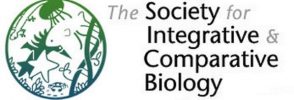Contents
- Division of Evolutionary Developmental Biology: Spring 2020 Newsletter
- Message from the Chair, Deirdre Lyons, Chair.DEDB@sicb.org
- Message from the Program Officer, Matt Rockman, DPO.DEDB@sicb.org
- Message from the Secretary, Prashant Sharma, Secretary.DEDB@sicb.org
- Message from the Student/Postdoctoral Affairs Committee Representative, Ryan Hulett
- DEDB Chair-Elect Candidate Biography
- DEDB Program Officer-Elect Candidate Biography
Division of Evolutionary Developmental Biology: Spring 2020 Newsletter
Please vote in the Spring 2020 Elections (candidate biographies can be found below). The deadline is April 19th, and the ballot can be found in the link provided here. http://burkclients.com/sicb/elections/2020.php
Message from the Chair, Deirdre Lyons, Chair.DEDB@sicb.org
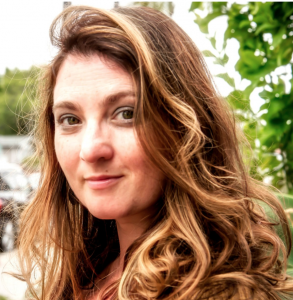
This year’s SICB meeting in Austin got the decade off to a strong start. I’m excited to take over as DEDB Chair from Kim Hoke, and want to thank her for all her work and efforts! I was so impressed by the programing, participation, and energy at this meeting.
Our division sponsored several symposia including “Building Bridges from Genome to Phenome,” “Melding Modeling and Morphology,” and “Biology at the Cusp,” among others. The DEDB Best Student Paper session, selected from submitted abstracts, was exceptional. We congratulate Alexis Lanza (Seaver Lab, Whitney Laboratory) for winning best student talk, and Raul Chavarria (Smith Lab, University of North Florida) for winning best student poster. Remind your students to submit their abstracts under this category for future meetings. And faculty, please donate your time to judge (thank you to those who judged this year!).
Speaking of students, I’d like to thank our outgoing Student/Postdoc Representative Amaneet Lochab (Extavour Lab, Harvard
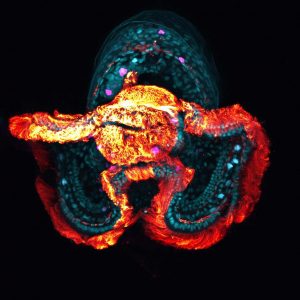
University) for the amazing work she has done for our Division. Not only does Amaneet tweet @SICB_SPDAC, but she also developed a set of “how to” handouts such as Getting into Grad School and How to Plan a Symposium. Amaneet again organized the popular Evo-Devo Dinners and Coffee Meetups program, facilitating an impressive 87 connections (up from 56 in 2019). In total, 83 people participated (31 grad students, 16 undergrads, 1 high school student; 10 post docs and 25 faculty), and many hosts sponsored both dinner and coffee dates (thank you!). We are excited to welcome Ryan Hulett (Srivastava Lab, Harvard University) as our new Student/Postdoc Representative for 2021/2022! Interested in becoming the Student/Postdoc Rep after Ryan? Email any member of the executive committee to let us know.
It’s already time to start planning for the next TWO meetings: Washington, DC (2021) and Phoenix, AZ (2022). The deadline for submitting symposia proposals for the Phoenix meeting is in August 2020. The key to making symposium-organizing fun and painless is to start early! Email me and/or our DEDB Program Officer Matt Rockman with your ideas this spring and we will help you build a strong proposal. Symposia are a great mechanism for bringing diverse colleagues together to integrate across disciplines or levels of biological organization; they are also important opportunities for postdoc and student-organizers to build their professional network. Alternatively, you may want to organize a workshop. The lead-time for proposing one is shorter: applications for workshops at the 2021 meeting in DC are also due in summer 2020. Two successful workshops sponsored by DEDB this year were a retirement celebration for Professor Stan Rachootin (Mount Holyoke College) organized by Mansi Srivastava and myself, and a roundtable discussion on “Overcoming challenges for testing gene function in post-embryonic life stages” organized by Alexa Bely and Elaine Seaver. Start thinking now…
Lastly, I’d like to draw special attention to the work SICB does towards broadening participation and creating an inclusive environment. At this meeting I was struck by the range of support efforts including childcare, a mothers’ room, a quiet room, multiple workshops on minoritized groups in STEM, multiple social and scientific events for LGBTQ+ attendees and allies, and ubiquitous discussion of the new SICB Guidelines on Broadening Participation in SICB’s Leadership, Programs, and Awards. Look forward to more great programming in this area in DC!
Please email me with your ideas for growing our division this year!
Message from the Program Officer, Matt Rockman, DPO.DEDB@sicb.org
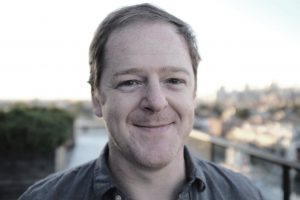
With another fantastic SICB meeting in the rearview mirror, we can start looking forward in earnest to January 2021 in Washington. I was pleased to represent DEDB at the SICB program meeting in the fall where we debated the rich slate of symposium proposals and put together a strong group of scientific themes for Washington.
DEDB is proud to be a sponsor for four of the Washington DC 2021 symposia:
- An Evolutionary Tail: EvoDevo, structure, and function of post-anal appendages, organized by Janneke Schwaner, Tonia Hsieh, and Craig McGowan.
- The integrative biology of pigment organelles, organized by Florent Figon, Jérôme Casas, and Leila Deravi.
- Genomic Perspectives in Comparative Physiology of Mollusks: Integration across Disciplines, organized by Omera Matoo and Maurine Neiman.
- Biology Beyond the Classroom: Experiential Learning through Authentic Research, Design, and Community Engagement, organized by Alexandra Hansen, Lisa Whitenack, Patrice Kurnath Connors, and Hayley Lanier.
These symposia cover a range of topics at the heart of evolutionary developmental biology and evolutionary developmental
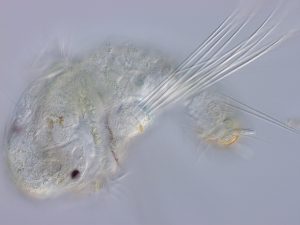
biology education. Of course, the meeting as a whole will include many more evodevo sessions. Mark your calendar for September abstract submissions! The SICB meeting is also a venue for workshops, typically held just before the meeting or at lunch times during the meeting. Workshop proposals will be due in early summer.
In the meantime, think about organizing a symposium for the 2022 meeting in Phoenix. The best way to have the SICB meeting of your dreams is to leverage the symposium format to invite your ideal panel to convene on your favorite topic. SICB and your faithful DEDB program officer are standing by to help you put together a symposium proposal. And note that we strongly encourage early stage researchers, including postdocs and PhD students, to submit proposals.
Message from the Secretary, Prashant Sharma, Secretary.DEDB@sicb.org
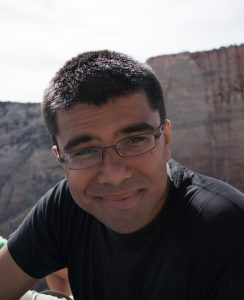
DEDB turns 20! This year holds a special significance for all of us in DEDB—our Division turned 20 years old in the week of the Austin meeting! Two decades after a small cabal of evodevo biologists gathered at the Atlanta SICB meeting in 2000, the past two decades have seen DEDB become a vibrant, bustling community, with growing membership and support for student participation. Special thanks to Matt Rockmann and the other program officers for putting together a dynamic and memorable 2020 program in Austin, with four (!) symposia sponsored by DEDB and 235 meeting attendees affiliated with our Division!
We are indebted to outgoing Chair Kim Hoke for her stewardship of DEDB in the past two years and outgoing student representative Amaneet Lochab for her tireless efforts in growing the EvoDevo dinner dates program. Their initiatives and enthusiasm have been vital to creating networking opportunities for students and establishing connections within DEDB.
Best Student Presentation Oral Session – The Austin meeting featured the 5th annual DEDB best student presentation
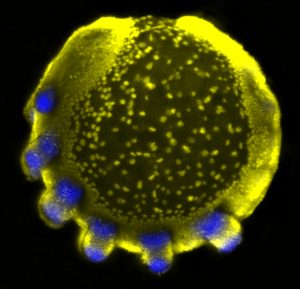
session. This student session is a dedicated part of our program and our commitment to professional development for junior scientists. Congratulations to our winner Alexis Lanza (Seaver Lab)! In addition, we’re delighted to congratulate Raul Chavarria (Smith Lab), winner of the best poster competition. As always, our students did not make our judging easy. My thanks also to the faculty who volunteered to judge the competition—your participation and support of DEDB’s initiatives makes the work of our Division possible!
This year, we implemented a couple of changes in the way we evaluate the competition: the panel of judges viewed and evaluated all eight competing talks (rather than choosing a subset of talks to evaluate) and filled paper ballots, with a designated section for feedback to students. The committee of judges also met after the session to reach a discussion-based consensus on the best student presentation. I will be mailing the written feedback from the judges to all eight competitors, which we hope will be useful to students in refining their presentations and in future endeavors. I would also like to encourage students to try competing more than once—that extra semester of experiments might make all the difference!
The business of the Division. Minutes of our divisional meeting in January 2019 are published on the SICB website. Candidate biographies for our election are available below in this newsletter. If you have any feedback or suggestions for the activities of the Division, please email me at Secretary.DEDB@sicb.org.
Best Student Oral Presentation Winner
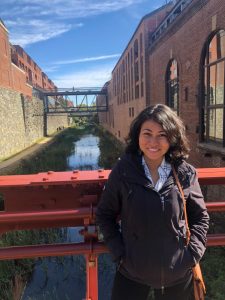
Alexis Lanza: I am a PhD candidate in the Dr. Elaine Seaver’s Lab, researching the embryonic signaling events critical for dorsal-ventral axis formation in annelids. I am particularly curious about the cellular and molecular mechanisms that drive developmental processes, and how cross-species differences in these mechanisms account for evolution of the body plan.
Best Student Poster Presentation Winner
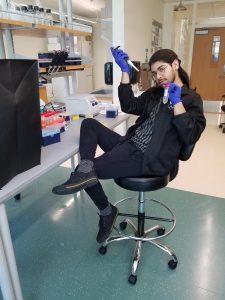
Raul Chavarria: I study body plan evolution at UNF alongside Frank Smith in Jacksonville, Florida. Tardigrades have a compact body plan that not only makes them adorable but incredibly interesting to study. I became interested in evolution since I am fascinated by the diversity and weirdness found within the animal kingdom. Although this mystery of the universe may never be solved, it is a blast working towards this goal. When not working in the lab I like to spend time outdoors pondering on how life would be if I were an invertebrate. If not outdoors, you can catch me in the kitchen making a mean ratatouille or in the garage taking transmissions out of cars.
Message from the Student/Postdoctoral Affairs Committee Representative, Ryan Hulett
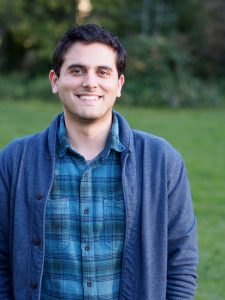
Greetings DEDB students and postdocs! I am thrilled to serve as your new DEDB Student/Postdoctoral Affairs Committee Representative. To introduce myself, I am currently a fourth-year PhD candidate in the Organismic and Evolutionary Biology program at Harvard University in the Srivastava lab. I am broadly interested in the evolution of the nervous system with regards to its structure and composition. I use a highly regenerative acoel to understand mechanisms governing neural cell-type specification and differentiation in an evolutionary context. I am very excited to get to know you, hear about your research interests, and figuring out how to best represent you.
I would like to thank the previous representative, Amaneet Lochab, for all of her hard work, especially with organizing the Evo-Devo dinner and coffee meet-ups. These have been instrumental in helping trainees build solid networks and broadening their research interests.
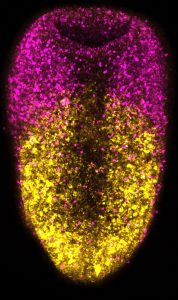
I hope you had a wonderful time at the meeting in Austin and had the opportunity to attend the amazing posters and talks.
Congratulations to our presenters! Also, a very special thank you to everyone who participated in the Evo-Devo dinner and coffee meet-ups. I plan to carry on the tradition of organizing this and welcome any feedback so that we can make it even better for SICB2021. Look out for an email from me in the fall regarding this, as well as opportunities to support your meeting and travel costs.
Cheers to a healthy and productive summer. Feel free to contact me (rhulett@g.harvard.edu) if you have any comments, questions, suggestions, or if you would like to get more involved in DEDB.
DEDB Chair-Elect Candidate Biography
(Ballot: http://burkclients.com/sicb/elections/2020.php)
David R. Angelini
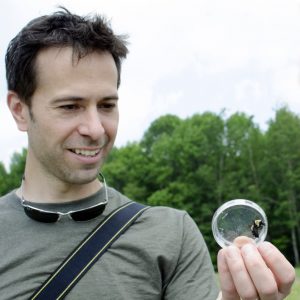
Current position: Associate Professor of Biology, Colby College
Education: B.A., 1999, St. Mary’s College of Maryland; Ph.D., 2005, Indiana University.
Professional experience: Associate Chair, Department of Biology, Colby College, 2019-present; Associate Professor, Department of Biology, Colby College, 2018-present; Assistant Professor, Department of Biology, Colby College, 2012-2018; Assistant Professor, Department of Biology, American University, 2008-2012; Graduate Programs Director, Department of Biology, American University, 2010-2012; National Research Service Award Postdoctoral Fellow, Department of Ecology and Evolutionary Biology, University of Connecticut; NSF IGERT Fellow, graduate research in the lab of Thomas Kaufman, Department of Biology, Indiana University.
Other memberships: Pan-American Society for Evolutionary Developmental Biology (PASEDB), PASEDB Secretary 2016-2020, European Society for Evolutionary Developmental Biology, Society for Developmental Biology, Genetics Society of America, Entomological Society of America
Research interests: My research examines developmental genetic systems with alternative phenotypic outcomes, including instances of phenotypic plasticity and polyphenism, as well as sexual dimorphism and serial homology. My research focuses on the generative mechanisms of these systems but also uses comparative approaches to explore their evolution. Insects are my most common study species, where I use a combination of methods from developmental studies, morphometrics, functional genetics and genomics.
Goals statement: It’s a great honor to be nominated to run for SICB’s DEDB chair. Over the last 4 years I have been able to help organize the evo-devo community through my involvement with the Pan-American Society for Evolutionary Developmental Biology (PASEDB), where I have served as society Secretary. During that time, I was lucky enough to work with other members of the board who were concerned with building platforms for communication and with supporting the education and advancement of young investigators in the field. My work with PASEDB has involved facilitating communication between the executive board and membership. I co-chaired workshops on technology in 2015 and education in 2017. As a member of the organizing committee for the 2017 PASEDB meeting in Calgary, I helped ensure the program featured a diverse range of science and a diversity of voices from our community. One of the continuing enterprises of evolutionary developmental biology is the synthesis of concepts and experimental approaches from historically disparate fields. The integrative aim and atmosphere of SICB makes it an organization that can play a special role in our field. The Society’s disciplinary breadth is particularly salient to the integrative nature of evo-devo. As DEDB chair, one of my goals will be to strengthen connections and interactions among DEDB and other SICB divisions. SICB has been an important organization to many researchers, and I hope to foster additional opportunities for students and young investigators to gain new skills and showcase their work. Strengthening connections between DEDB/SICB and other organizations, such as PASEDB, EuroEvoDevo and the Society for Developmental Biology, is one way to provide new opportunities for young scientists whose work spans traditional disciplines, as is continuing to advocate for funding resources from the NSF and other agencies and foundations. Finally, I would like to explore ways in which DEDB and SICB might engage with the broader community, particularly in K-12 education. My own outreach efforts have focused on connecting insect biology, as well as development and evolution, to urban ecology, providing teaching resources and citizen science opportunities for K-12 teachers through bugsinourbackyard.org. The research breadth of DEDB and its membership will provide many different opportunities to engage the public, excite students, and increase understanding of development and evolution. I look forward to the work ahead!
DEDB Program Officer-Elect Candidate Biography
(Ballot: http://burkclients.com/sicb/elections/2020.php)
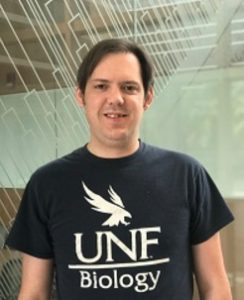
Current position: Assistant Professor of Biology, University of North Florida
Education: B.A., 2007, University of Rhode Island; Ph.D., 2013, University of Connecticut
Professional experience: Assistant Professor, Department of Biology, University of North Florida, 2017-present; postdoctoral research associate University of North Carolina at Chapel Hill, 2013-2017.
Other memberships: Pan-American Society for Evolutionary Developmental Biology (PASEDB).
Research interests: My research compares development of tardigrades to arthropods and other animals to investigate the developmental changes that underlie the diversification of animal body plans.
Goals statement: I am passionate about the field of evolutionary developmental biology and would like to facilitate the continued growth of this field in any way possible. I am particularly enthusiastic about contributing to the Division of Evolutionary Developmental Biology because this Division played an important role in my growth as a scientist, and now fosters the growth of my students. The Program Officer position would provide me with an excellent opportunity to do this.
